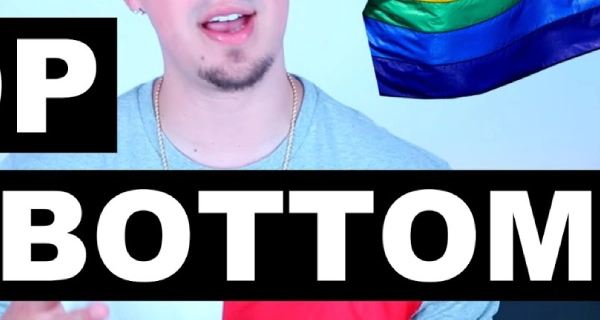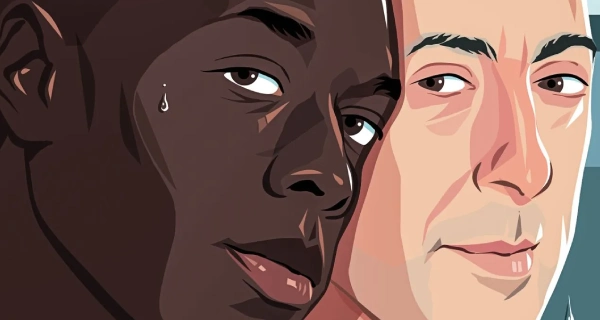
- › Personal Story About Discovering That My Partner Is Bisexual
- › The Impact on Personal Identity and Comfort Levels
- › The Importance of Communication as We Navigate Events Together in Public/Private
- › Statistics & Medical Facts Surrounding the Impacts of Bisexuality
- › Supportive Pathways: Navigating Sexuality with Valuable Resources and Communities
That's great! It's important to support your partner and their sexual orientation. Remember that bisexuality is a valid and normal orientation, and your partner's attraction to both genders does not diminish their love for you. Communication and understanding are key in any relationship, so make sure to have open and honest conversations with your partner about their needs and feelings.
Personal Story About Discovering That My Partner Is Bisexual
Discovering that my partner is bisexual was a shock at first. We had been together for almost a year and I had no idea. It wasn't until we were watching a movie with a bisexual character that he mentioned he could relate to the character's struggles.
I didn't know how to react at first. I had never been in a relationship with someone who was bisexual before and I didn't know what it meant for us. Would he leave me for someone of a different gender? Would he be unsatisfied with our relationship?
I had a lot of questions and concerns, but I also knew that it was important to support him and understand his identity. We had a lot of conversations about what being bisexual meant for him and our relationship. He assured me that he loved me and that his attraction to men didn't change that.
It took some time for me to fully understand and accept his sexuality, but I'm grateful that he trusted me enough to share that part of himself with me. It's been a learning experience for both of us, but we've grown stronger because of it.
The Impact on Personal Identity and Comfort Levels
Discovering that your boyfriend is bisexual can have a significant impact on your personal identity and comfort levels. It's natural to feel a range of emotions such as confusion, doubt, and even jealousy. However, it's essential to remember that your partner's sexuality is a part of who they are, and it doesn't diminish the love and affection they have for you.
One of the significant impacts of your boyfriend's bisexuality is on your personal identity. It's natural to question your own sexuality, and you may find yourself exploring your feelings and desires. This can be a challenging time, but it's also an opportunity for growth and self-discovery.
Another impact is on your comfort levels. It's essential to have open and honest communication with your partner about their bisexuality. This communication can help establish boundaries and expectations in your relationship. It's also crucial to respect your partner's sexuality and not make assumptions or stereotypes about their behavior.
It's important to remember that your boyfriend's bisexuality doesn't define your relationship. It's just one aspect of who they are. With open communication, mutual respect, and understanding, you can navigate this new aspect of your relationship together.
The Importance of Communication as We Navigate Events Together in Public/Private
When your partner is bisexual, it's important to have open and honest communication about how you will navigate events together in public and private. This is especially true if you are new to the relationship or if you are still learning about your partner's sexuality.
In public, it's important to discuss how you will present yourselves as a couple. Will you hold hands or show affection in public? How will you respond to questions or comments from others about your relationship or your partner's sexuality? These are all important questions to consider and discuss with your partner.
In private, it's important to make sure that both partners feel comfortable and respected. You may need to have conversations about boundaries and what is and isn't okay in the relationship. For example, your partner may want to explore their bisexuality in a safe and consensual way, and it's important to have open communication about what that might look like for both of you.
Ultimately, the key to navigating events together as a couple when one partner is bisexual is to have open and honest communication. This will help ensure that both partners feel respected, comfortable, and supported in the relationship.
Statistics & Medical Facts Surrounding the Impacts of Bisexuality
Bisexuality is a sexual orientation where individuals are attracted to both genders. According to recent statistics, approximately 1.8% of the American population identifies as bisexual. While bisexuality is a normal and healthy orientation, it is often misunderstood and stigmatized by society.
Research has shown that bisexual individuals are more likely to experience mental health issues such as depression, anxiety, and substance abuse. This is due in part to the discrimination and lack of support they may face from both the heterosexual and LGBTQ+ communities.
Bisexual individuals are also at a higher risk for sexually transmitted infections (STIs) than heterosexual individuals. This is in part because they may have more sexual partners than individuals who identify as gay or straight.
It's important to note that being bisexual does not increase the risk of contracting HIV or AIDS. However, bisexual men are more likely to engage in high-risk sexual behaviors such as unprotected sex and drug use.
If your boyfriend is bisexual, it's important to have open and honest communication about his sexual health and any concerns you may have. Encourage him to get regular STI testing and practice safe sex. Remember that his sexual orientation does not define him as a person, and should not impact the love and support you have for him.
Supportive Pathways: Navigating Sexuality with Valuable Resources and Communities
Coming to terms with your own or someone else's sexuality can be a difficult and confusing process. However, there are many resources available to help you navigate this journey and provide support along the way.
One great resource is PFLAG (Parents, Families and Friends of Lesbians and Gays), an organization that provides support and education for the LGBTQ+ community and their allies. They offer local support groups, educational resources, and advocacy for LGBTQ+ rights.
Another helpful resource is The Trevor Project, a national organization that provides crisis intervention and suicide prevention services to LGBTQ+ youth. They offer a 24/7 hotline, chat and text services, and a safe social networking platform for LGBTQ+ youth to connect with each other.
There are also many online communities and forums, such as Reddit's r/bisexual or r/lgbt, where individuals can connect with others who are going through similar experiences and find support and advice.
Finally, it's important to remember that therapy can be a valuable resource for individuals and couples as they navigate their sexuality. A therapist who specializes in LGBTQ+ issues can provide a safe and supportive environment to explore feelings and work through any challenges that may arise.







